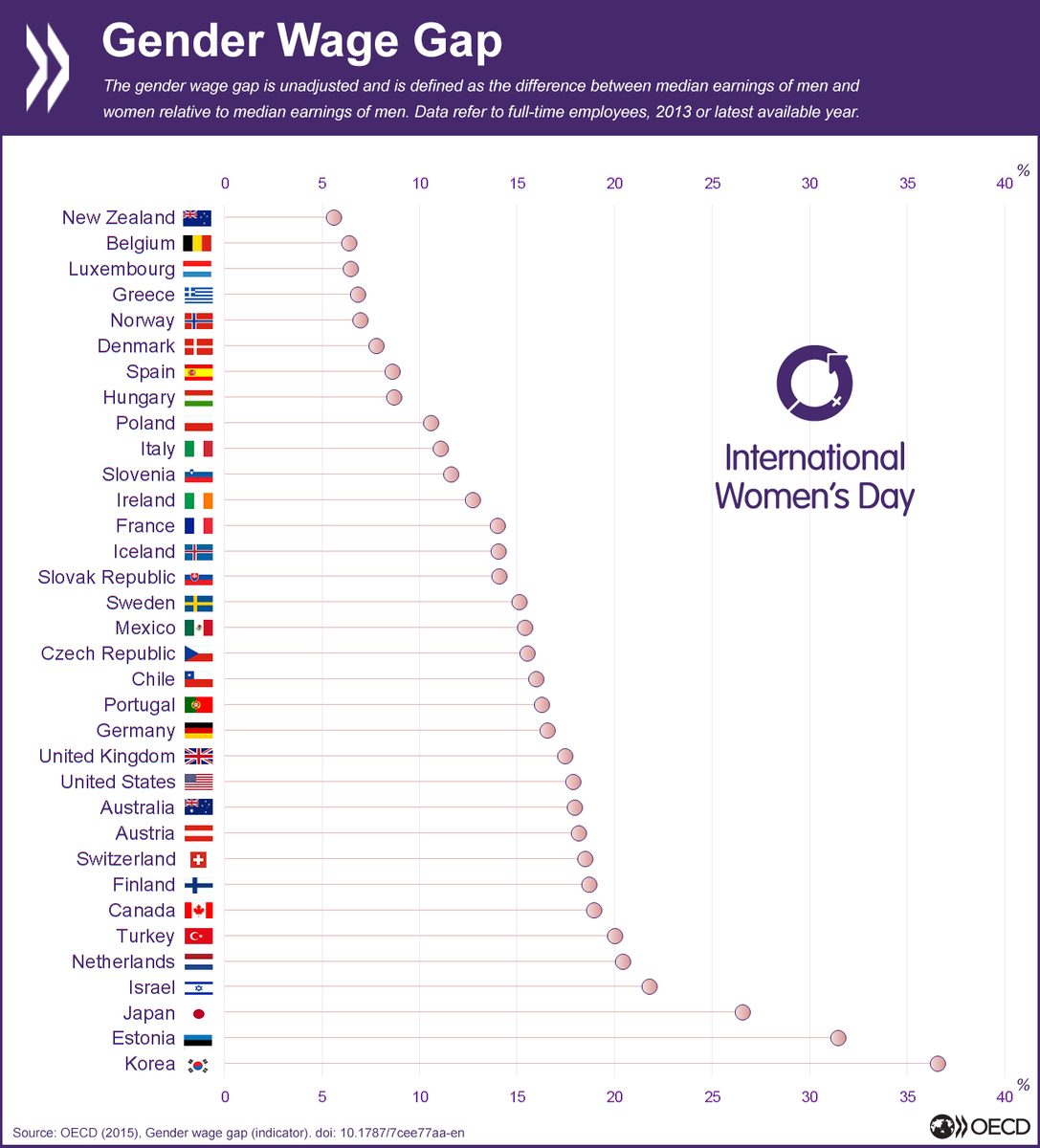In 2015 New Zealand women face a widening gender pay gap, ongoing harassment at work and are increasingly being blocked from senior positions, Dunedin South MP Clare Curran said today.
Delivering the opening speech of the YWCA Dunedin UN International Women’s Day event, Clare Curran said the gender pay gap in the public sector stood at 19%, the highest it has been since 2007.
‘The private sector performs slightly better at 15.6% but there is still a trend towards lengthening rather than narrowing the gap.
Yet Utopia - you are standing in it has this chart up:


3 comments:
Wow. And that's unadjusted for differences in human capital & duration employed.?
Looking at employed (all employment, consider that woman made up 72.3% of the part time work force as of 2009) median income for each gender from 2014 Woman are $767 per week to men's $1,000.
This seems well, well within where you'd expect it to be considering the shift to 'equality' is generational (the average 60 year old woman could hardly be expected to be as qualified as a man in her position, based on the world they grew up in), and the jobs that woman tend towards at the moment being lower paying in general (education vs. engineering etc.), and still more frequently taking time off work to do things like raise children (which is huge in terms of career progression, and thus lifetime income, and social, rather than something that we should seek to alter to tweak other statistics). Another social rather than systemic difference which I've never seen acknowledged by someone pushing for gender based laws is in personality types, men being far more likely to be 'rational' types. I can't say what causes it, but it's not policy, and it certainly affords a greater pool of males for management positions, and more technical positions which rational types are far more likely to want to fill, and far more likely to be effective in.
In my mid 20s I don't know a single woman who feels she's been discriminated against because of her gender in employment.
Are we at a stage of equality of opportunity (which I imagine any egalitarian would aim for)? I think we are, possibly tipping in favour of females. To measure income only and ignore preferences and norms and other non policy causes as the root of the difference says a lot about the strength (or lack thereof) of the point in my eyes.
The gender gap calculated by the OECD is unadjusted
Post a Comment